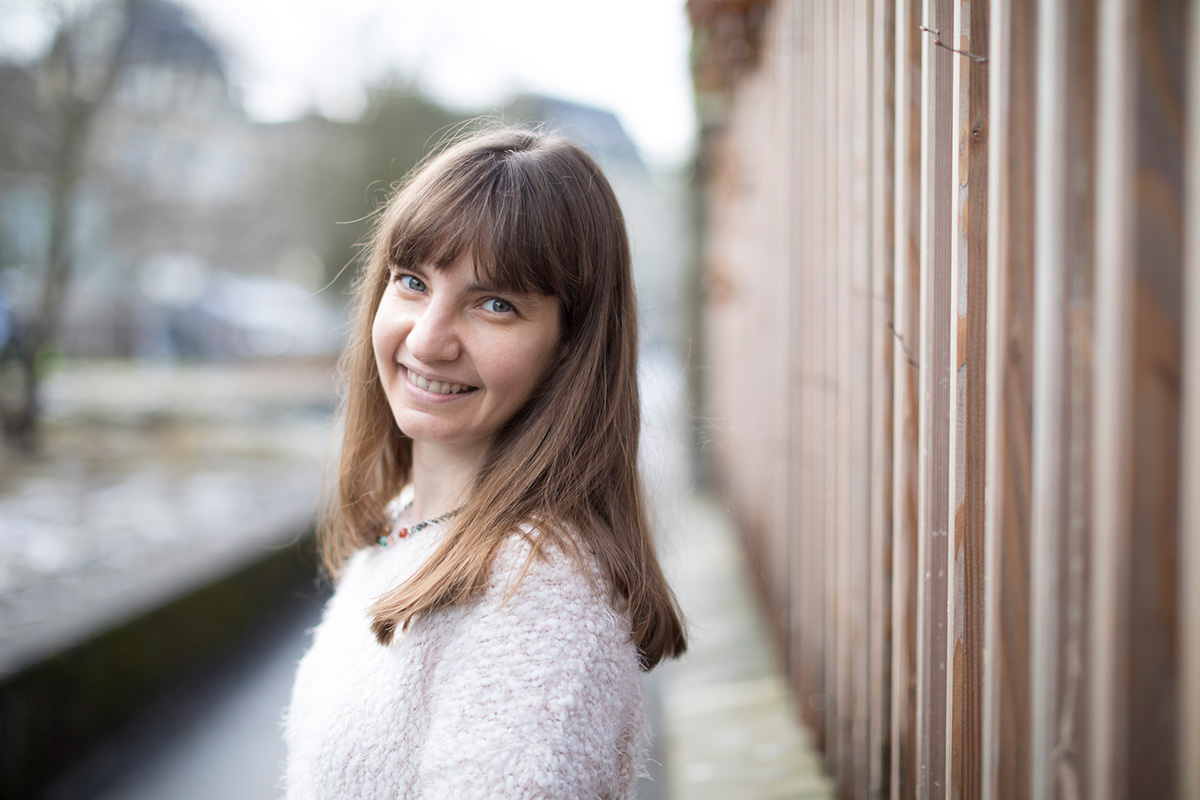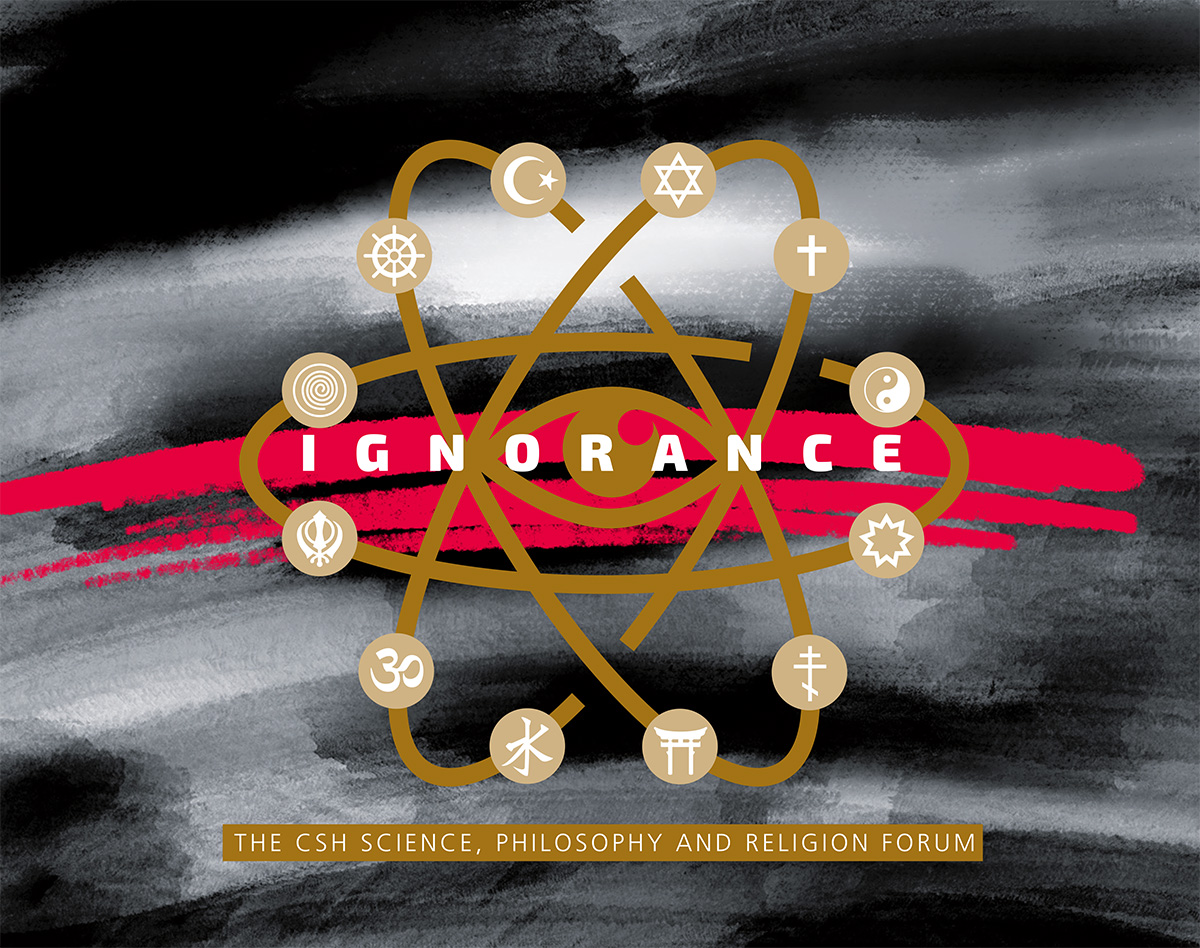What do we know about ignorance?
Knowledge is commonly taken to be one of the most important values. But how is it related to its counterpart ignorance? This is the topic of the 2nd edition of the interdisciplinary "CSH Science, Philosophy and Religion Forum" which will take place from June 7 to June 9. Vera Matarese, co-organizer of the event, explains what visitors can expect and what fascinates her about the topic.

Vera Matarese: The forum centers around the topic of ignorance, and it features contributions from scholars with diverse academic interests and intellectual backgrounds. Its aim is therefore to gather knowledge exchange on the topic of ignorance and promote an interdisciplinary reflection on it. In this regard, I think that the participants will have the opportunity to think more and better about what ignorance is and how we should tackle it, learn different approaches to the topic, interact with top scholars in the field and share ideas with them.
Why is it important to approach questions from an interdisciplinary perspective?Interdisciplinary perspectives are essential to creating stronger intellectual visions. If we want to be virtuous thinkers and researchers, we should not be blind to what happens in other disciplines, rather, we should proactively leverage intellectual diversity in academia. Only by encouraging cross-fertilization of ideas coming from different disciplines, our research gets more valuable. In this regard, the CSH, by sponsoring this forum, is creating an excellent platform that facilitates meaningful communication and collaboration across different academic cultures and research fields.
What do the organizers expect from the CSH Science, Philosophy and Religion Forum?The forum will help creating and developing a stronger, deeper and more comprehensive vision for the study of ignorance. It will build bridges between different approaches to the topic of ignorance and bring different academic communities together. We expect that the participants will create a novel interdisciplinary approach to the topic of ignorance, gather deeper understanding of it, and find new resources to tackle it.

I hope that the CSH will keep sponsoring the forum and that the collaboration between the CSH, the Institute of Philosophy and the Institute of Theology will continue. An interesting topic that could be proposed for our next event is the method. While it is common lore that science has its method, an interesting question is whether philosophy and religion have their own methods and if so, to what extent they differ from the scientific method. This question is particularly interesting as there is no one universal scientific method that applies to all scientific disciplines.
Have you already dealt with the topic of ignorance in more detail in your own research?I have never researched into the topic of ignorance. However, I have carried out research on particular instances of scientific crisis, where scientists were or are at loss in analyzing cases of replication failures. It was very enlightening for me to investigate how scientists tackle these situations and overcome their state of ignorance by formulating the right questions and finding the right ways to approach them. I am also particularly fascinated by and have been drawn into how astrophysicists can construct exoplanet atmospheric models, by adopting modeling techniques that can overcome our ignorance about exoplanets.
How do you deal with your own ignorance?Doing research is trying to push the boundary of knowledge further, and this happens on a personal level, given that there are always certain aspects of my research subject that I do not know, and on the level of the scientific community, as there are aspects that have not been investigated yet or about which there is no consensus. In this second case, I try to expand knowledge by finding the correct questions and the most appropriate ways to answer them, and by checking how other scholars have approached a similar situation in other contexts.
Is there a specific lecture at the CSH Forum that you are personally looking forward to? And if so, why?I look forward to all talks, as they all look equally exciting. However, I would particularly recommend the opening lecture of this forum, by Stuart Firestein, Professor at Columbia University, because it will provide an accessible but intellectually stimulating reflection on ignorance and its relation to science. According to him, human ignorance is a valuable state of mind, in his own words, “Scientists do reach after fact and reason, but it is when they are most uncertain that the reaching is often most imaginative.” What I think is that ignorance can be a valuable state of mind only if the ignorant is aware of their ignorance. We are all ignorant about something, but as Amos Bronson Alcott said, the ignorant’s worst malady is to be ignorant of their ignorance. This workshop, and Prof. Firestein’s talk in particular, will certainly provide a remedy for this malady.
ABOUT VERA MATARESE
Vera Matarese has been a fellow of the Center for Space and Habitability and a postdoc at the Institute of Philosophy at the University of Bern since 2020, after holding a research fellowship at the Center for Philosophy of Science at the University of Pittsburgh and a postdoctoral position at the Czech Academy of Sciences. Her research and teaching interests range from metaphysical issues of science, in particular involving the interpretation of physical theories, to issues in the methodology of scientific practice, in particular about the replicability crisis. More recently, she has been drawn into philosophy of astrophysics.
Contact:
Dr. Vera Matarese
Center for Space and Habitability (CSH)
Gesellschaftsstrasse 6
3012 Bern
Phone: +41 31 684 55 97
E-Mail: vera.matarese@unibe.ch
CSH SCIENCE, PHILOSOPHY AND RELIGION FORUM
The 2nd CSH Science, Philosophy, and Religion Forum is the result of an interdisciplinary collaboration between the Center for Space and Habitability, the Institute of Philosophy and the Institute of Historical Theology at the University of Bern.
The forum will feature talks by scientists, philosophers and scholars working in religion and political studies. It will start on Tuesday, 7th June with a public evening lecture by professor Stuart Firestein (Colombia University), author of the book "Ignorance, how it drives science" (Oxford University Press), at the University of Bern. It will then continue, at the Gurten, until Thursday, 9th June. All talks will be in English.
Flyer 2022 of the "CSH Science, Philosophy and Religion Forum"
CENTER FOR SPACE AND HABITABILITY (CSH)
The mission of the Center for Space and Habitability (CSH) is to foster dialogue and interactions between the various scientific disciplines interested in the formation, detection and characterization of other worlds within and beyond the Solar System, the search for life elsewhere in the Universe, and its implications for disciplines outside of the sciences. The members, affiliates and collaborators include astronomers, astrophysicists and astrochemists, atmospheric, climate and planetary scientists, geologists and geophysicists, biochemists and philosophers. The CSH is home to the CSH and Bernoulli Fellowships, which host young, dynamic and talented researchers from all over the world to conduct independent research. It actively run a series of programs to stimulate interdisciplinary research within the University of Bern including collaborations and/or open dialogue with Medicine, Philosophy and Theology. The CSH has an active tie to the Centre for Exoplanets & Habitability of the University of Warwick. It is active in implementing gender equality measures and public outreach.
ABOUT THE AUTHOR
Flurina Werthmüller is an intern at the Communication & Marketing Department of the University of Bern.